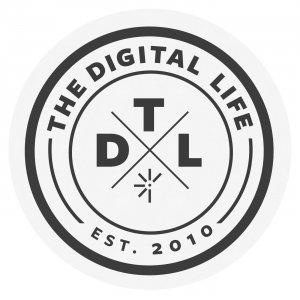The Digital Life

Hacking Cars
Jon: Welcome to Episode 114 of The Digital Life, a show about our adventures in the world of design and technology. I'm your host, Jon Follett, and with me is founder and co-host, Dirk Knemeyer.
Dirk: Greetings, Jon. What's in the news today?
Jon: I think some of the biggest tech news the past week or so has been all about this Chrysler auto hack. Basically, a set of hackers who were benevolent, apparently, in their intent, hacked into a Jeep while a writer from Wired Magazine was driving it on the highway, and demonstrated how they could do things, sort of innocuous things, but annoying things like turn on the air conditioning and put their picture up on the dashboard, and then do something very alarming, which was, they were actually able to cut the power to the engine entirely.
I've seen other video where they're able to take control of the steering and do things to the brake system, all of this connected software that Chrysler has in their vehicles and has since issued a patch for and shut down this particular exploit.
The idea is certainly maybe not a new one but has not had this level of public scrutiny, which is, as our cars become rolling boxes of technology, they are subject to people being able to do this sort of exploit of events to them and then ultimately wreak all kinds of mischief.
In this case, no one was hurt, of course, but we can see the potential, where the Internet of Things is meeting up with all of the security concerns of being hacked, and it's really causing quite an uproar. What's been your take on that exploit, Dirk?
Dirk: It's a great foreshadowing of how we're moving into a period where our connected computing devices are integrated into our lives in a way where they can be used to hurt us physically. They can used to hurt us for real, so hacking, until now, the limits of it were basically identity theft, which is not great. If you really had your identity stolen, there could be some big inconveniences and, depending on how you react to it, potentially big problems, but there's nothing that can physically harm you directly, as if a weapon is hitting you.
Here, we have this exploit where somebody could take your car and, with the little picture they showed with the article, drive it right into a ditch. You could be killed by a hacker who gets into your device and gives it instructions to take you off path and put you in the way of physical harm.
This is just the beginning. This is going to be a lot more in the future, not less, as the devices are either integrated into us physically. By into us, I'm not talking necessarily about from a sideboard prospective, but just from touching our bodies, or from controlling things in and around our bodies that, if taken in a certain direction, could cause us harm. To me, it's just sort of a warning sign for something that those of us on the inside have known is coming. This, now, is really showing it to the mainstream and saying, "Look at the potential of what can happen," and again, it's just the beginning.
Jon: I think as it means something extra special in America, where your car, in a lot of ways, the car has been seen by many as an extension of yourself. We spend a lot of time in our cars, and we love our cars, and we transformed our entire national infrastructure to support driving. We're not super into taking rail, whether it's lighter or heavy rail. aWe fly a lot, but the car, the American roadway, this country was built up around cars, so exposing someone's most personal vehicle is meaningful, because it touches on just about everybody. This technology, of course, is not in every car right now, but that's where it's headed. I think there's a culture in America around cars that is being invaded by this cyber security problem.
I honestly don't know what the total reaction's going to be. Certainly Chrysler was immediate with their recall of 1.4 million vehicles across a number of their different vehicle types.






 Visit Podcast Website
Visit Podcast Website RSS Podcast Feed
RSS Podcast Feed Subscribe
Subscribe
 Add to MyCast
Add to MyCast